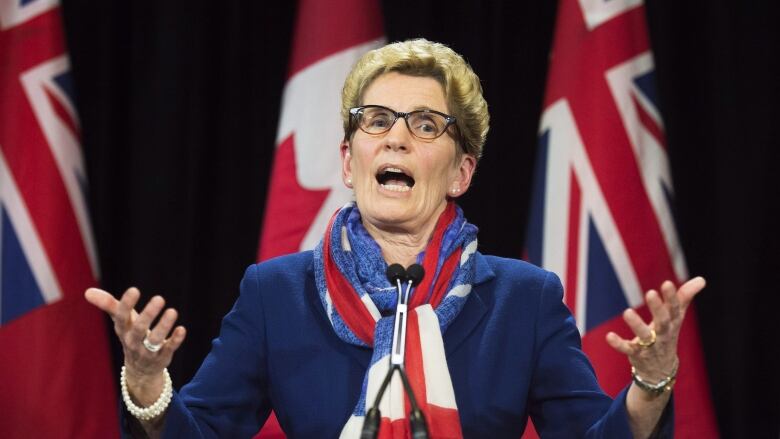Ontario Liberals propose ban on top political staff from fundraisers
Amendments to legislation would ban chiefs of staff from attending political fundraisers

Ontario's Liberal government is adding some top political staffers to the list of people it wants banned from fundraisers.
- IN DEPTH | Ontario's biggest political donors revealed
- Ontario Liberal Party held 100 exclusive fundraising events in 2015
- Ontario Liberals raised $1.6M for just one byelection
The Liberals have proposed banning members of provincial parliament, party leaders, nomination contestants and candidates from attending such events, as part of an election finance reform bill.
The legislation was introduced amid criticism over fundraising events that saw cabinet ministers attend private, high-priced functions with stakeholders.
The opposition parties said if the fundraiser ban wasn't extended to chiefs of staff, it would allow cash for access through the backdoor that was banned through the front door.
Just two weeks ago the government indicated that the ethics of chiefs of staff would be covered under a code of conduct, and not a legislated fundraising ban, but reversed course yesterday.
The Liberals released a finalized package of amendments to the bill, as it heads into its final stages before being passed, including extending the ban on attending fundraisers to staff who work for the premier or other party leaders, and chiefs of staff.
Politicians could still attend events where the ticket price only recovers the cost of hosting it, and solicit funds by mail, phone or email.
The bill would also ban corporate and union donations and give the political parties a per-vote subsidy to offset the loss of those funds. Individuals would be allowed to donate a maximum of $3,600 in an election year.
Restrictions are also set to be placed on the amounts that third parties can spend on political advertising during elections and the six-month period before scheduled general election periods, as well as limits to the political advertising spending of registered political parties in the six months before an election.












_(720p).jpg)


 OFFICIAL HD MUSIC VIDEO.jpg)
.jpg)



























































































